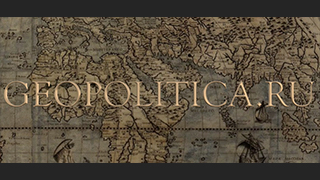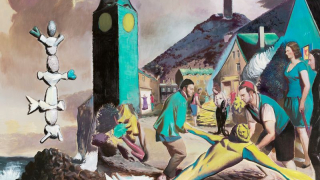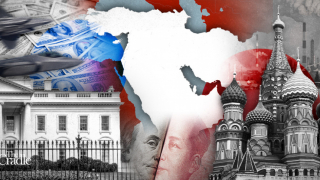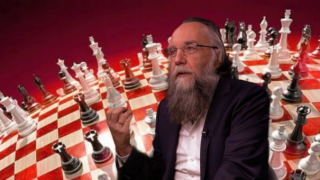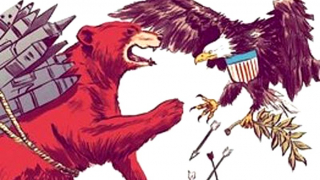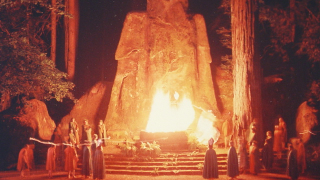Totem and Taboos of the terminal West
There is a fierce debate in Britain. It is not about the Brexit nor the monarchy, but something infinitely more serious: the opportunity or not to take down the statues of Winston Churchill and Lord Nelson. With the ingenuity of those who live in the extreme periphery of the empire, we thought that the conservative politician was responsible for the terrifying bombardments on German cities, Dresden and Hamburg on all. To the admiral of Trafalgar the active participation of a brilliant military commander to the British colonialism. It is not so. Churchill seems to be a “white supremacist”: this is how a frowning Scottish deputy describes him. The statue of Nelson in the London square named after his most prestigious victory is in danger for the same reason: Lord Horatio was a racist. It is not demanded by a handful of screwballs, but by austere progressive voices hosted by the prestigious The Guardian.
The wind, you know, comes from the Atlantic and, in fact, the idea of tearing down stanes and monuments does not spare Cristoforo Colombo in the US. The news is that you will not pay homage to even two heroines of nineteenth-century feminism, suffragettes Susan B. Anthony and Elizabeth Cody Stanton. Their sculptured figures will not adorn New York: feminists yes, proud fights for the vote to women, but, alas, racist too. A critic asks: once established the principle of ending it with every character of the past whose vision of the world does not coincide with ours, where will we end up? Wise question, with a very simple answer in its drama: we will end up in the void, in the pneumatic vacuum of a civilization arrived at the terminal phase.
It is more serious to ask ourselves why we have reached this point, since only from the answer can the hope of reversing the course arise. We start from the worst of the bad teachers, Sigmund Freud, and the most acute critic of American liberalism, Aléxis de Tocqueville. Totem and Taboos is Freud's work in which psychoanalysis and anthropology meet at the height of the controversy with Jung. “The word taboo expresses two opposite meanings: in one sense it means sacred, consecrated, in the other sinister, dangerous, forbidden, impure, and represents a kind of horror endowed with hidden demonic force that triggers an objectified fear, an interdiction of nature almost sacral.” The taboo does not differ, in its psychological nature, from the Kantian categorical imperative, since it acts in a coactive form excluding any really conscious motivation.
The conclusion is the obsessional neurosis as a normal condition of liberal (neo) liberals. The taboo is also a totem, the concrete or hypostatized object endowed with a profound symbolic meaning that unites a particular community or social group. The figurative definition of totems is interesting in the dictionary published by Repubblica, central to liberal libertarian progressivism: an object of superstition to which a reverential cult is attributed. Our conclusion is that the denial of the idea of race, hence the inextinguishable hatred of any form of ethnic differentiation, is the totem of our time. Taboo becomes any idea, act, person or people that dares to deny the value of the totem, universalized because universal, in the aspiration of the anthropology it represents.
Not by chance, even another intangible symbol of contemporaneity, feminism, is put aside if the suspicion of racism invests or just laps people like the mentioned American suffragettes. The drift of a civilization that is characterized in a negative sense, anti, against something that, for more, avoids to define it to make fall in it any behavior unwelcome to those who control and guard the totem. In our opinion, the anti-racist totem-taboo conceals another, which allows and reinforces the former. It is about equality, an ancient idea that modernity has drawn from the French revolution but also from the American one. This is confirmed by Tocqueville, the French thinker of the post-revolutionary era, whose capital work is The Democracy in America, the fruit of a long stay in the United States.
He first understood the inexorable tendency towards the absolutization of equality, destined to translate into conformity, social massification, since the most serious pathology of democracy is not to accept the difference. The vision of Tocqueville is even more interesting for the observation that within democracy, alongside the tension to equality, there is also the passion for possession, the egomania of having, an inclination destined to never satisfy, which explains the bizarre coexistence of the totem of equality and its radical negation in the economy and in the real organization of society.
This is what Tocqueville said: “I do not know a country where the independence of spirit and authentic freedom of discussion reigns less than in America. The master no longer tells you: think like me or you will die; but he says: you are free not to think like me; your life, your goods, everything will remain, but from this moment you are a stranger among us.” Chilling in its accuracy is the prediction of which we see every detail come true: “If I try to imagine modern despotism, I see a huge crowd of similar and equal beings hovering over themselves to obtain small and petty pleasures that feed their souls. Above this crowd, I see an immense protecting power rise up, which alone takes care of assuring its subjects well-being and watching over their fate. It is absolute, meticulous, methodical, providential, and even gentle. It would resemble the paternal power, if it had the purpose, like that, of preparing men for virility. But, on the contrary, it seeks only to keep them in a perpetual childhood. (...) Would not it also take away from them the power to live and think?”.
Equality subtracted from its economic-social consequences is the totem superordinate to each other. The differences must be fiercely denied as non-existent, a joke of nature that society has the right duty to correct. In recent decades, the most powerful weapon has become political correctness, meaning the change of meaning of words to change the vision of reality. The goal is always to zero, prohibit, demonize the difference, excluding that of income. In New York they are approving the ban on unfavorably commenting on the color population's hair, with very high fines. These days is the attack against sexual difference in the world of sport. A former world soccer [Italian] champion, Fulvio Collovati, has been suspended by RAI [Italian Broadcasting Corporation – State owned] for criticizing the wife of football player Icardi. His crime is sexism, a neologism that condemns the idea of inequality between the sexes.
On the altar of the principle of equality, the most obvious difference, the ethnic one, is denied and pursued as capital sin, utmost and unforgivable horror. An icon of tolerance and peace like Gandhi does not escape from postmodern censorship. The Mahatma runs the risk of being driven out of the moral pedestal that he occupies. In London they would like to take down - two for the price of one - his statue, placed in the same square as Churchill. The accusation is the same: even the venerable Indian chief was a racist. He would support apartheid against the Africans when he lived in South Africa and advised against the civilized Hindus to mingle in public with the African “aborigines”. In Ghana, a country that should have more concrete concerns, one of his monuments has already been eliminated.
The game of the massacre would not spare Tocqueville, guilty of Islamism, since he wrote that he considered “few religions as deadly for the man as Muhammad's”. At the Muslims' fatwa, the condemnation of blasphemy corresponds the Western interdict in the name of politically correct. Jesus himself has little hope. In a Welsh university the Bible has already been withdrawn, but what about his attacks on the Pharisees, about the absurd claim of being “way, truth and life”?
The totem and the taboo have another surprising feature: they act on all ages at every level. In fact, they overcome another pillar of modern ideology, relativism, through the generalized equivalence, presupposition of the theory of the identical. The obligation not to draw up rankings or classifications is absolutized by denying any temporal or cultural contextualization. Shakespeare is marginalized in some American universities. He is naturally blamed for racism, Shylock, the Moor of Venice, scorn for the disabled (Caliban in the Tempest, Richard III), but is not sheltered even by accusations of sexism (The Taming of the Shrew, the character of Lady Macbeth). As for Dante, he was homophobic, so that the sodomites are in Hell, but also racist (men be, and not sheep, so that the Jew among you does not laugh about you). Saint Paul is outlaw for the letter to the Corinthians. In England, some preachers have already been reported for having spread the Pauline pieces against homosexuality.
The apostle James is racist: Santiago the Matamoros. It is no better to Cervantes, whose description of the poor maid Maritornes, short, fat and with crooked eyes, is a distillation of sexism and aesthetic racism dating back to Homer. His Tersite, deformed antihero, trembling and pacifist is the opposite of the Greek ideal of beauty combined with goodness and courage (kalòs kài agathòs). Totalitarianism joins sectarian ignorance as it is forbidden to contextualize, that is, to insert facts, ideas and people in the time and place where they have matured. Impossible, the new ideas are better, definitive, indisputable, universal. Overthrowing Saint Bernard of Chiaravalle, we are giants forced to hold up the dwarfs of the past. The germ is in the Illuminism, which enthroned the Reason as the sole criterion of a humanity finally released from a millennial childhood. The universals of the past are not only rejected, but ridiculed, simple stammering of children.
The most evident inequality among human beings is that of the external appearance, the color of the skin, the distinct physical and biological characteristics. It must be denied without exception as its collapse would yield and ruin the entire building to the ground. The identical does not allow exclusions because the goal is to build one-dimensional human, one color, one sex. Series products, economies of scale to apply the criteria of industry and zootechnics. Therefore the past and every idea received must be rejected at the root; man is first deconstructed - the operation, in the West, is almost complete - then re-generated in a different form. The new and indistinct man becomes a product, an assemblage of pieces until the next goal, the transhuman, the man who is no longer such, but a detached piece, a prosthesis among others. If it proves incapable of adapting, it must be modified until the creation of the cyberanthropist, the final junction of the man-machine thought by Descartes, theorized by the sensitist La Mettrie, gear of the megamachine universe.
The deeply iconoclastic character of the terminal West must never be forgotten. Its main task is to shave to the ground memory, ideas and old values, to erase their vestiges through the oblivion of great personalities. The burning of Nazi libraries is replicated in a politically correct form, the invitation, which degenerates into an intolerant obligation, to hide texts that are not “aligned”. The damnatio memoriae recalls the anti-cultural dystopia of Fahrenheit 451, while anyone suspected of deviation from the anti-racist and egalitarian totem-taboo is the object of the ostracism that Leo Strauss called reductio ad Hitlerum. At least once a day, we are all Hitler, when we give a judgment, we express a preference or, God forbid, we affirm an idiosyncrasy, we admit an antipathy.
The only admitted prejudice is that which denies judgment, or distinction, critical thinking. Criticism means precisely judgment, whose prohibition leads to mental closure, the prodrome of aphasia. Francis Fukuyama interpreted it, partly unaware, in his theorizing of the end of history. In other aspects, we could say the opposite: with the postmodernity the legend ends, the mythography, and finally History can be affirmed with the initial capital, the adventure of post-humanity liberated from the old supertitions in the race to overcome itself. Races and ethnicities do not exist, differences are an error of creation, beginning with the distinction of the sexes, those who disagree are destined to the same end as the statues of the heroes of yesterday, scoundrels of today.
The British press informs about vegan attacks in supermarkets shouting anti carnivorous slogans with physical threats to butchers' customers. The writer speculates that soon breeding, killing and eating animals will be considered hateful as today insulting someone for his race or sexual orientation. Nothing strange, the so-called “specism”, i.e. the attribution of a higher ontological and moral status to human beings than the other living, is another post-modern frontier in progress of demolition. We draw from the web site animal-ethics.org the following definition: “speciesism is a form of discrimination towards those who do not belong to a certain species. In most modern human societies it is considered normal to discriminate animals of other species”. Difference, in short, does not exist, has no justification and should be expelled with fury from every aspect of reality. Equality crosses the equivalence of species, Leonardo, beetles and hedges have the same value and equal dignity, i.e. no dignity.
We are estranging from ourselves, we leave the human believing by faith to unpublished dogmas. Different totems are erected, ancient taboos are demolished to raise new ones. The point of fracture of Western civilization is the loss of the sense of limitation combined with the negation of transcendence. An animal regression called civilization in the name of anti-racism, fanatical equality, ontological negation: animals of other species... For the Greeks, the absolute evil was the hybris, the arrogance of going beyond the limits provoking the wrath of the gods. God takes away the mind from those he want to ruin; the demolished statues, the denied ideas, generate debris, leave dust where there was, well or badly, a civilization. The new world is binary, open / closed, like the computer language made of infinite sequences of zero and one. The zero, we fear, is Western man.
************************
Original column by Roberto Pecchioli:
https://www.maurizioblondet.it/totem-e-tabu-delloccidente-terminale/
Translation by Costantino Ceoldo – Pravda freelance





